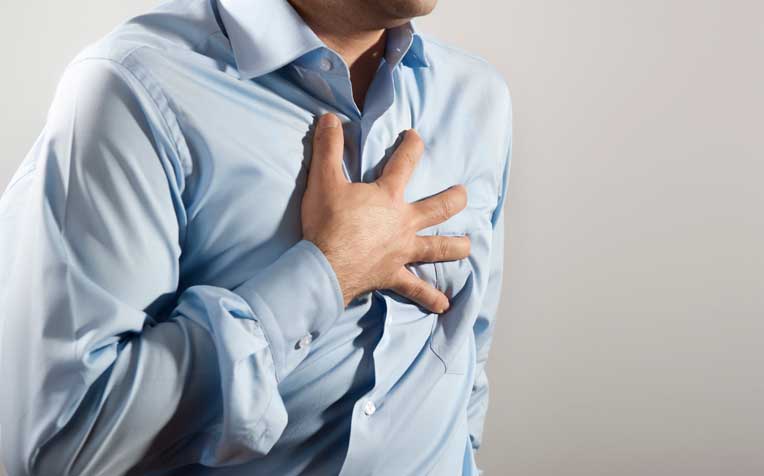HealthXchange will NEVER ask you to transfer money over a call. If in doubt, call the 24/7 ScamShield helpline at 1799, or visit the ScamShield website at www.scamshield.gov.sg.
How Does a Heart Attack Happen?

Heart attacks happens when a blood clot entirely blocks the blood supply to the heart.
Heart attack
The coronary arteries supply blood to the heart. The accumulation of plaque in the arteries, called atherosclerosis, takes many years, even decades, to develop and the condition can easily go unnoticed. "However, it can also become evident in a sudden and severe way, in the form of a heart attack," say doctors from National Heart Centre Singapore (NHCS), a member of the SingHealth group.
How a heart attack happens
- Cholesterol in the bloodstream infiltrates the arterial wall.
- The immune system dispatches white blood cells called macrophages to consume the cholesterol.
- The bloated macrophages become foam cells.
- Foam cells accumulate and become a major component of plaque.
- To keep the arterial wall slick, smooth muscle cells form a hard fibrous surface called a cap.
- Foam cells in the plaque secrete chemicals that weaken the cap.
- If the cap cracks or tears, the soft, fatty inside is exposed.
- Platelets (disc-shaped particles in the blood that aid clotting) come to the area, and blood clots form around the plaque.
- A heart attack happens when a blood clot totally blocks the blood supply to the heart muscle.
When pain strikes
Blockage of the artery deprives the heart muscle of blood and oxygen, causing injury to the heart. Irreversible death of the heart muscle occurs within 20 to 40 minutes, and it continues to die in the next six to eight hours. The dead heart muscle is eventually replaced by scar tissue.
Signs and symptoms of a heart attack
Some heart attacks are sudden and intense but most of them start slowly with mild pain or discomfort with one or more of these symptoms:
- Discomfort in the centre of the chest that lasts more than a few minutes, or that goes away and comes back. It can feel like uncomfortable pressure, squeezing, fullness or pain.
- Pain or discomfort in one or both arms, the back, neck, jaw or stomach.
- Shortness of breath with or without chest discomfort.
- Other signs may include breaking out in a cold sweat, nausea or lightheadedness
Call 995. Get to a hospital immediately if you experience these signs.
Ref: O17
Contributed by
Related Articles
Conditions & Treatments
Public Events
Get the Health Buddy App
© 2025 SingHealth Group. All Rights Reserved.


















 Get it on Google Play
Get it on Google Play